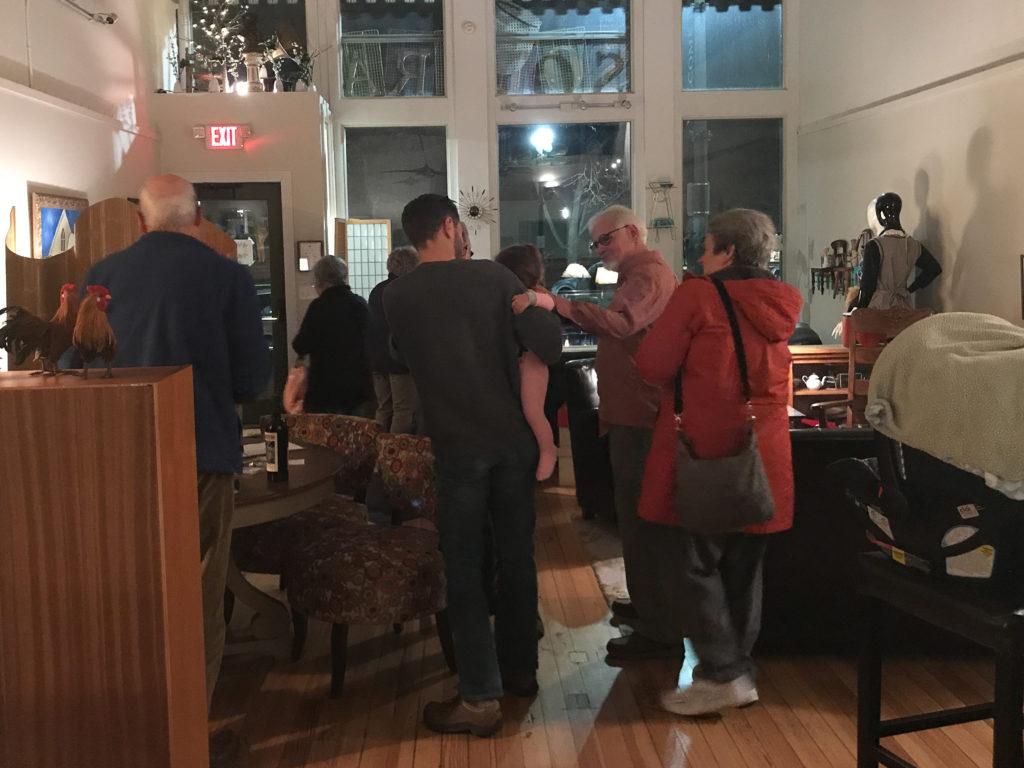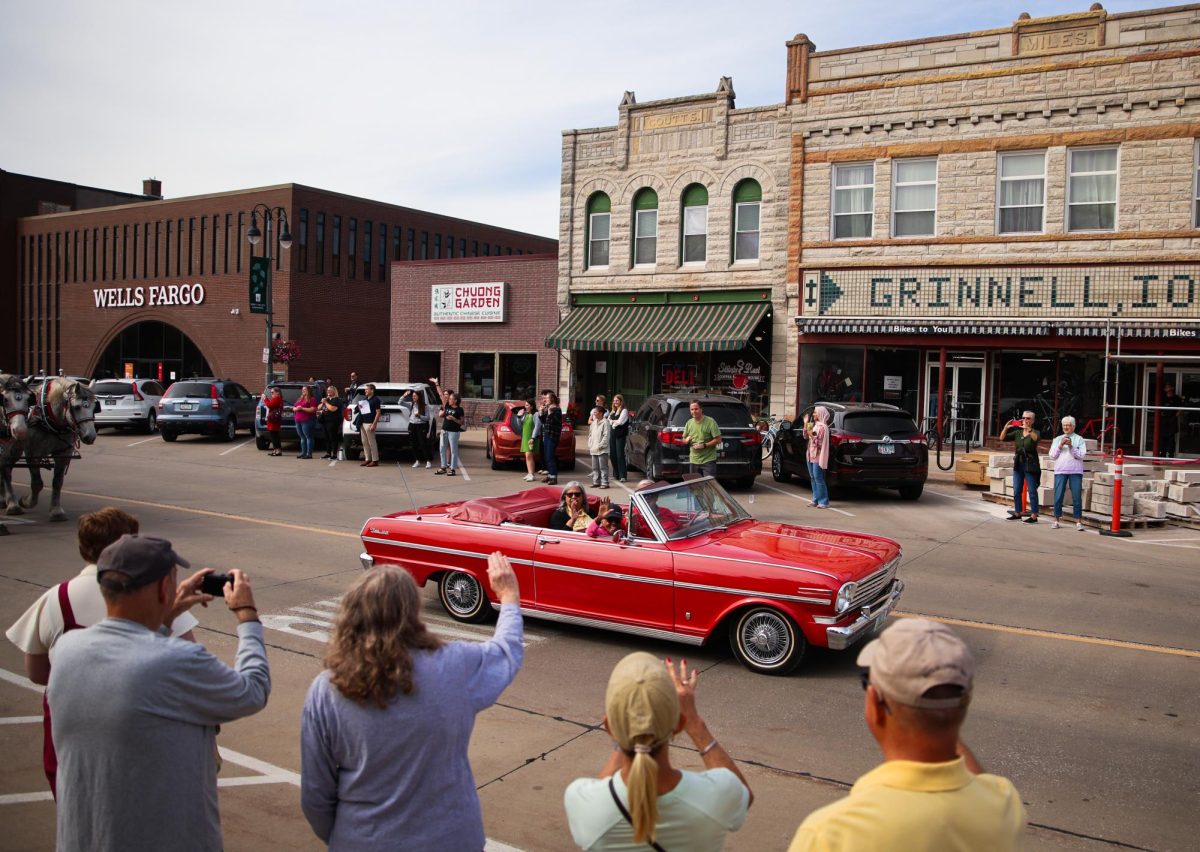Six days after the midterm elections, 15 members of the grassroots political organization Iowa People’s PAC gathered at Solera Wine Bar in downtown Grinnell to reflect and evaluate their plans as 2020 approaches.
“The question tonight is where do we go? What do we do next?” said the group’s treasurer Professor Emeritus Kent McClelland, sociology, at the event.
Iowa People’s PAC is a progressive group formed in January 2017 in the wake of the 2016 election. Their goal is to help elect progressive candidates through grassroots fundraising focused on local elections. The group’s founding members were motivated by what they see as problems with Iowa’s campaign contribution system, in which donors from outside the state can give unlimited amounts of money to their favored candidates. The group argues that this leads to politicians who are responsive to their sources of money rather than the voters in their own district.
“The only way you’re going to fight that,” McClelland said, “is to start at the local level and start raising small donations from people and put them together into a political action committee.”
Iowa People’s PAC does this by collecting monthly donations of $20 from between 50 and 60 contributors, each of whom becomes a member of the PAC. Members then choose local candidates to support, offering to match the funds raised by the candidates as long as the money is raised through small contributions. In this month’s election, they supported Jason Roudabush for County Supervisor and Dave VanCampernolle for County Attorney, as well as Kayla Koether ’12 and Ann Egley for House Districts 55 and 76, respectively. Roudabush won his race and votes in Koether’s race are being recounted. In total, the PAC gave $14,605 in support of these candidates.
Monday’s meeting began with a conversation with Koether, who called in from her car as she continued to organize her drawn-out campaign. Koether told the group she was down by just eight votes and was in the process of talking to people who had requested absentee ballots but did not have a record of their vote being counted. These people could have abstained from voting, or their ballots may have been lost in the mail.
Koether said that because she is running against a Republican incumbent with “credible name recognition,” raising her profile was key in making the election competitive. The PAC’s contribution made it possible for Koether to buy radio and television ads and helped motivate others to donate.
Roudabush also described how crucial grassroots funding was in his race, as it allowed him to purchase print and radio ads. He said the key to his campaign was talking to as many voters as possible, regardless of party.
“I focused majorly on the rural areas because that’s where we lose elections as Democrats,” he said.
Roudabush recounted stories of Independents and Republicans who warmed up to him after a conversation. Targeting all voters, not just Democrats, became a major takeaway from the 2018 campaigns for organizers.
Patrick Hansen, chair of the Iowa People’s PAC, said it’s important to “look beyond the data” when determining which voters to contact. He adds that looking forward, the ideal Democratic candidate in Poweshiek county “needs to be a candidate who connects with rural voters.”
Looking forward to 2020, the PAC will reassess and choose one of four plans: disband entirely and donate the remaining money, operate at the same level, grow to the level at which they could impact a State Senate race, or partner with people in another Iowa county who would use the same funding model. The group hopes to decide between these options by the end of 2018.





















































